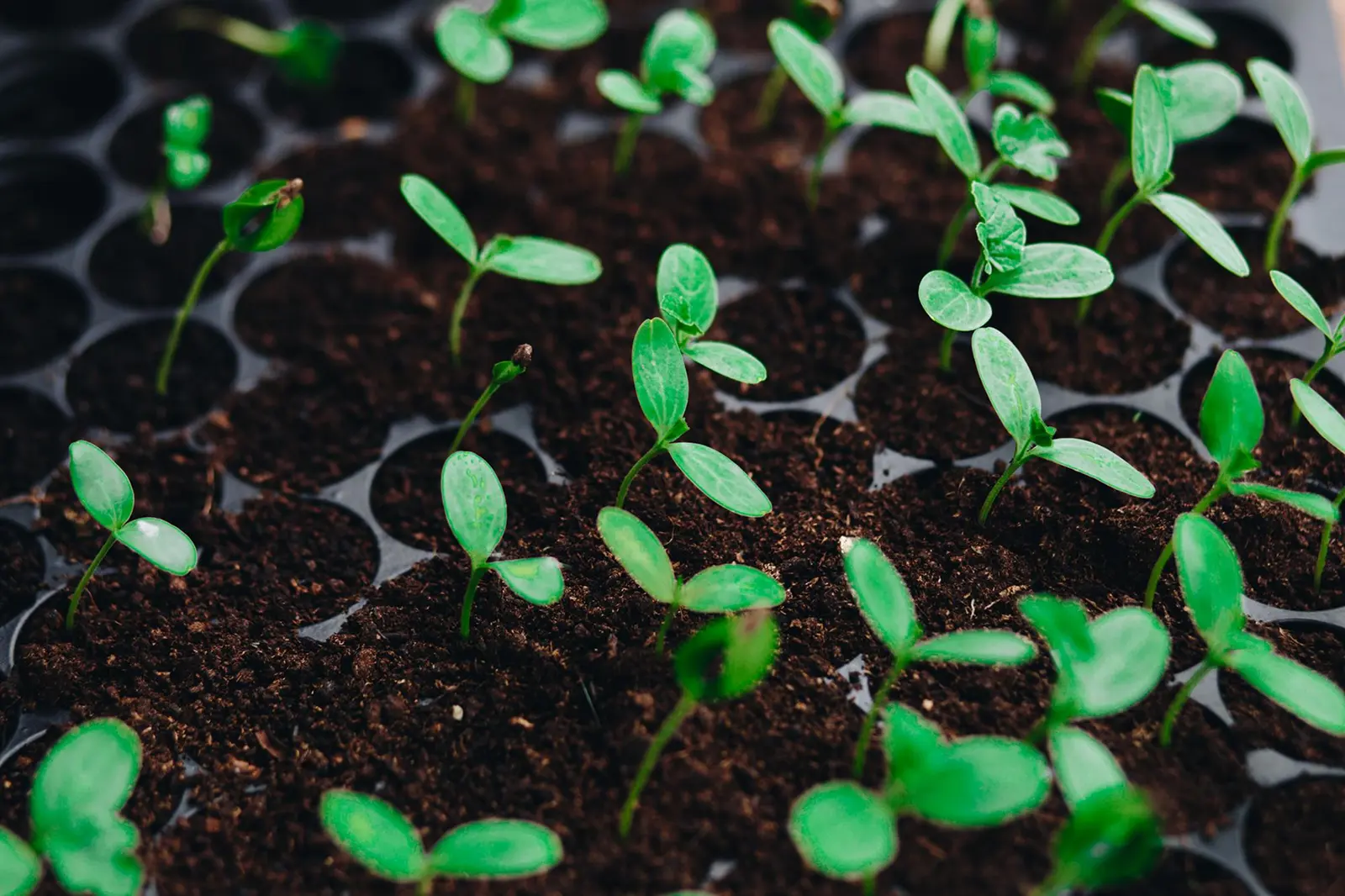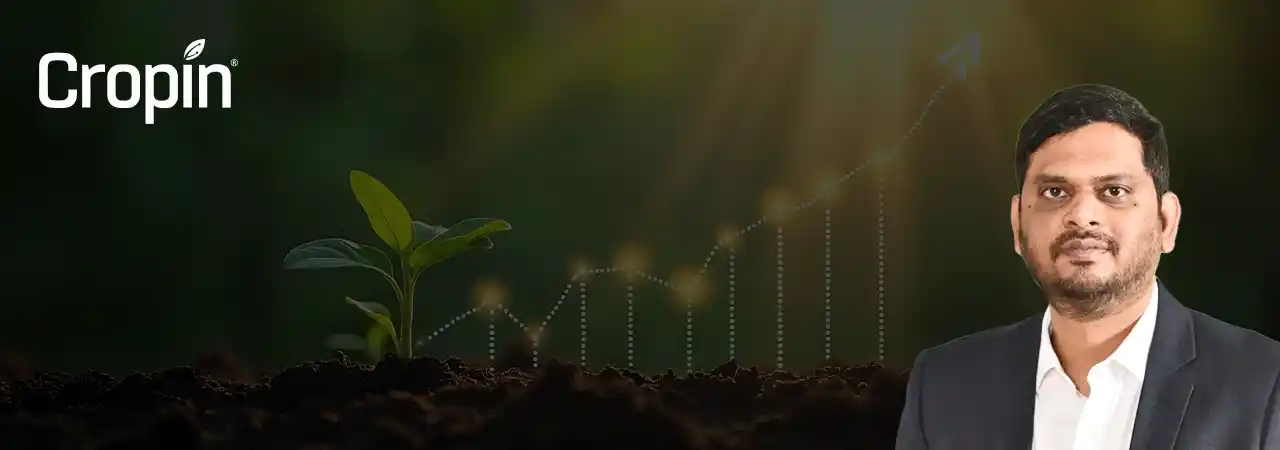Seed is central to farming, horticulture, forestry and even gardening; or simply put into growing any plant. Seed quality plays a vital role in yield maximization, with research indicating that it accounts for 20-25% of agricultural productivity. The reality, however, paints a very different picture.
During the seed-sowing season, growers face numerous issues such as:
- Low germination rates
- Gap-creation due to non-germination of seeds
- Scarce labor leading to higher wages
- Seed wastage
- Fluctuating weather
- Pest occurrence
To resolve these critical issues, seed companies can leverage digital decision support tools like big data, machine learning (ML) and artificial intelligence (AI) to ensure precision in agriculture, which paves the way to customer loyalty with farmers.
A research by McKinsey shows, that successful adoption of connectivity in agriculture has the potential to generate an additional value of $500 billion to the global GDP by 2030.
The art and science of prescriptive planning using agtech tools
At the heart of prescriptive planning (a farming system that offers data-driven planting advice) lies real-time data that is powered by precision seeding technologies. These ‘intelligent’ tools gather invaluable data related to seed production and quality compliance, agricultural machine performance, farmer engagement levels, seed health analysis, seed efficacy, seed performance, yield optimization, etc. Additional data touch-points include satellite data (think: weather trends, land surface and shape, and previous harvest yields and patterns), internet of things, and drones, among others.
How does this help?
Statistical experts collect and combine this goldmine of agro-information using satellites and drones and apply complex algorithms to large data sets from multiple farms.
The biggest benefactor of these actionable insights is large seed corporations.
Prescriptive planning in farming is estimated to increase yield and profits, benefiting both seed companies and farmers. Seed companies can advise farmers on enhancing their planting in real-time to maximize crop output with precise analysis down to 10 square meters of land.
Tech-first seed companies are key to addressing farming issues and driving ‘smart’ seed farming. For a farmer to have a successful sowing season, they need to be prepared to tackle unpredictable variables within the seeding value chain. Agtech tools provide warnings and help growers beat some of these issues. For example, it warns growers about anticipated rains and asks them not to water the plants. Control of input resources such as fertilizers, water, and seed quality are vital to have good produce. It is here that technology can remove the guesswork out of sowing, plant healthy crops, and manage seeding by engaging in prescriptive planning.
The role of AI in seed sowing and precision seeding
Every crop has an optimal window for cultivation, including important factors such as the soil temperature, fertility, moisture levels, etc. AI-powered technology can capture that ‘window of growth’ and help accelerate various phases of seed farming with laser precision.
As a bonus, the new precision seeding methods can be retrofitted to the current machinery without requiring intense capital investment or effort. A few time-tested AI tools that are actively being used to overcome hurdles in seed farming include:
Sensor and IoT:
Seed companies can leverage sensors and satellite-referenced data to understand field variability and prevent seed overlap. Sensors come in handy for various use-cases such as:
- Providing real-time intelligence on soil temperature and moisture, NPK measurements, solar radiation, and other environmental conditions
- Prevent over- or under-watering to ensure optimal plant growth
- Evaluating the health of each seed variety and checking progress in real-time
- Enabling quicker response to production risks, such as unfavourable weather conditions
Cloud-based big data tools:
Cloud platforms, such as Cropin, allows advanced data analysis and data modelling to arrive at recommendations for more intelligent decision-making.
- Examining historical plot performance to determine the best seed varieties for the agro-climatic zone
- Optimizing the use of water and other inputs, which are crucial during sowing, using precision agriculture
- Automating alerts relating to seed health and weather forecasts at the touch of a button
- Establishing a two-way communication channel between the business and the farmer, enabling timely relay of critical data related to on-field operations
Planning, research, and preparation are essential in the process of seed sowing. Technological intervention becomes important during the seed sowing stage.
With the world’s first global Intelligent Agriculture Cloud, Cropin is a pioneer in the Agtech space. Cropin’s flexible platform enables various stakeholders in the seed production ecosystem to leverage digitization & AI at scale to make decisions that increase efficiency, scale productivity, and strengthen sustainability.
Cropin’s solutions enable seed corporations to:
- Test and collect accurate data
- Streamline the research and development stages
- Identify base grade seed quality
- Improve profitability by fast-tracking seeds to market
- Reduce the time spent on research and development
- Meet certification standards or forecast demand more accurately.
Needless to say, it’s the beginning of an exciting era of Agtech, which will witness tech companies offering considerable benefits to seed corporations.










